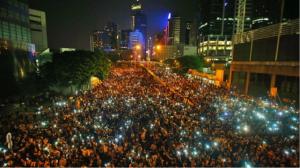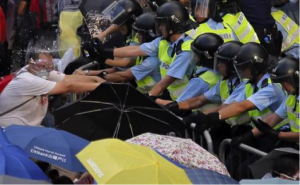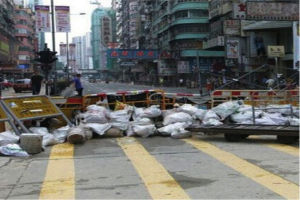The “Occupy Central” movement is also referred to as the Umbrella Revolution, which is an anti-government action in Hong Kong. This protest happened on Sep 28th 2014. The protesters protested outside the government building, blocked traffic over the Central district, created conflicts, impeded sectors, damaged the public order of Hong Kong, and threatened the public’s safety that would harm Hong Kong’s high reputation.
“Occupy Central” movement gives negative impacts to business of Hong Kong. This movement affects retail, catering, financial, trade and industry. If the movement keeps going, it will hit investors’ confidence for the business environment of Hong Kong.
This movement also impacts the tourism industry of Hong Kong. The Mainland Chinese tourists play a substantial role supporting the economy of Hong Kong industry. In 2013, mainland tourists’ total consumption in Hong Kong was HK$ 152.73 billion, equivalent to 7.2% of GDP in Hong Kong. Currently, there is a holiday for the National Day of China, however, the number of tourists decreased by 1.7% to last year, and the tourists from Mainland China decreased by 6.4%. Some countries like Canada and Australia issued travel warnings to Hong Kong. Since the “Occupy Central” movement happened, it caused the economic depression around HK$ 350 billion, equivalent every Hong Kong people lost HK$ 50,000.
The Hong Kong government have taken actions to handle this situation. They have arrested 19 people who are concerned related to crime.
“We are not seeking revolution. We just want democracy!” said Joshua Wong, a 17-year-old student leader. “We hope there will be no violence,” he said. “It would be unfortunate if this movement ended with bloodshed and violence.”


